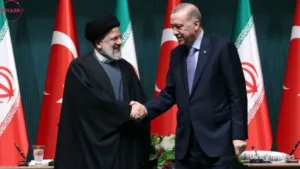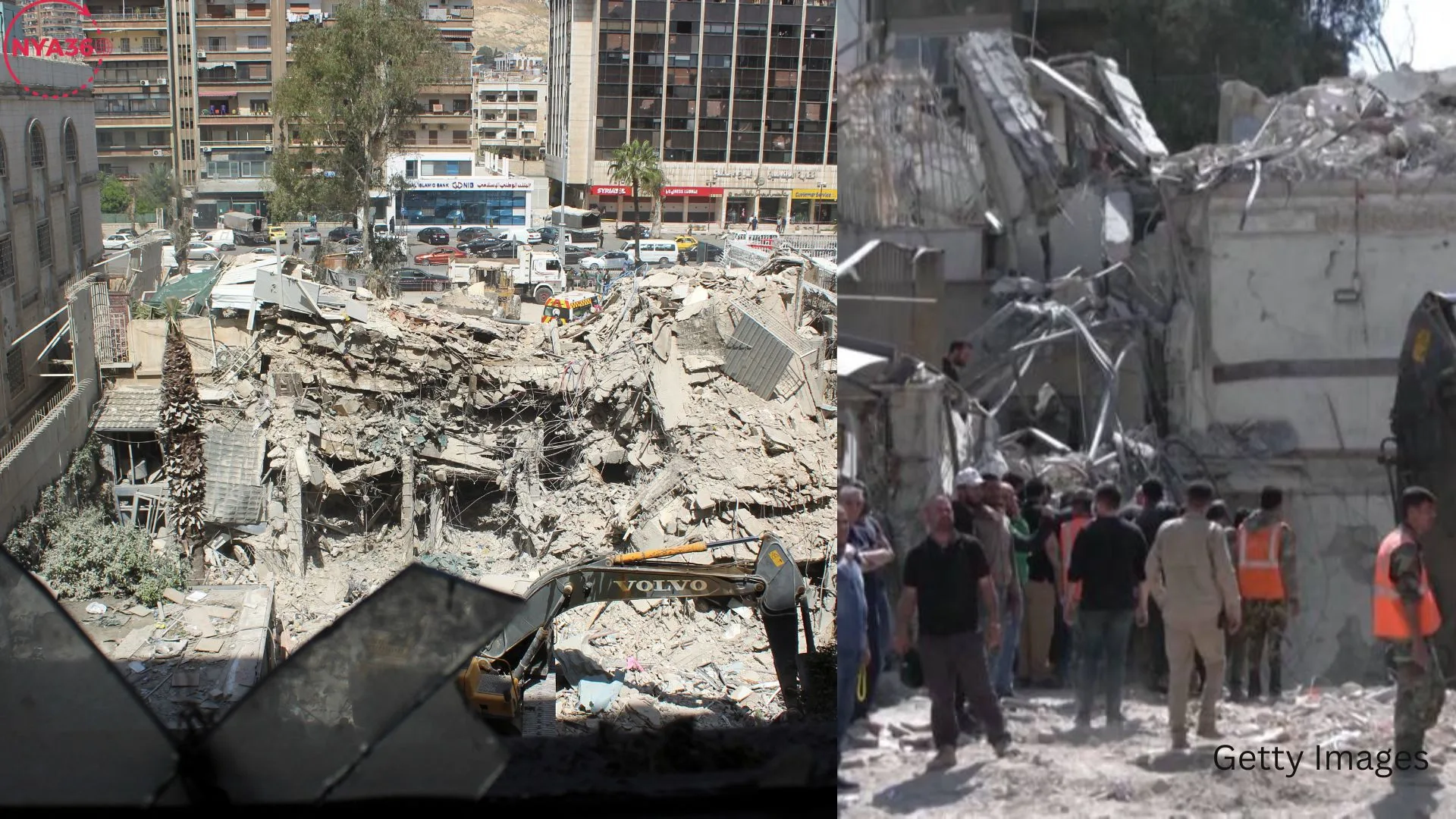The current escalation of hostilities between Iran and the United States, aggravated by Israeli assaults on the Iranian embassy in Syria, has raised fresh apprehensions about the possibility of conflict in the unstable Middle East region. Following the strikes, the United States has advised Iran to abstain from attacking American bases and forces. At the same time, Iran’s Supreme Leader has sent a strong caution to Turkey’s President Erdogan on his country’s association with Israel. With the increase in diplomatic tensions and the escalation of military posturing, there is a significant possibility of confrontation, causing concerns about a broader conflict with significant ramifications.
The Israeli airstrikes targeting the Iranian embassy in Syria have escalated tensions between Iran and its regional foes, further worsening an already unstable situation in the Middle East. Iran has criticized the strikes on its diplomatic facilities in Damascus, labeling them as a clear breach of international law and an aggressive act against its sovereignty. Iran has pledged to react against the perpetrators of the strikes, which has sparked concerns of a reciprocal escalation that might become uncontrollable.

In light of the increasing tensions, the United States has urged Iran to demonstrate self-control and avoid attacking American bases and military personnel in the region. The United States, in a statement released by the State Department, underscored the significance of reducing tensions and refraining from additional provocations that may escalate into a broader confrontation. The call for self-control arises in the middle of mounting apprehensions around the possibility of misjudgment and unforeseen repercussions, when both parties participate in risky and aggressive behavior.
Simultaneously, the Supreme Leader of Iran has delivered a strong cautionary message to President Erdogan of Turkey, alleging that Turkey is sustaining “duplicitous connections” with Israel. During a meeting between the two presidents, Iran’s Supreme Leader expressed dissatisfaction with Turkey’s strong relationship with Israel, cautioning Erdogan that Iran was well aware of Turkey’s actions. The comments demonstrate Iran’s profound hostility towards Israel and its attempts to weaken what it sees as cooperation between Turkey and its regional enemies.

The interaction between Iran and Turkey highlights the intricate network of alliances and rivalries that characterize the geopolitical terrain of the Middle East. Turkey, a member of the North Atlantic Treaty Organization (NATO) and an important ally of the United States has aimed to manage its strategic interests in the area while also preserving friendly relations with Israel. This approach has faced disapproval from Iran and other nations in the region. The disagreement between Iran and Turkey underscores the difficulties that regional states encounter as they maneuver through conflicting interests and changing alliances in an increasingly unstable environment.
The ongoing escalation of tensions in the Middle East raises concerns about the potential for a broader confrontation. The American military presence in the region, along with ongoing military operations and proxy battles, has resulted in a highly volatile scenario that has the potential to escalate into a large-scale war. The international community should intensify its efforts to alleviate tensions and promote communication among the parties concerned, in order to avert a potentially disastrous escalation that might severely impact regional stability and global security.

Ultimately, the recent escalation of conflicts between Iran, the United States, and neighboring countries has intensified tensions in the Middle East and sparked concerns of a broader war. As the language used in diplomatic discussions becomes more aggressive and the display of military strength becomes more pronounced, the likelihood of making a mistake or experiencing unforeseen outcomes increases. This emphasizes the pressing requirement for engaging in conversation and reducing tensions. It is imperative for the international community to collaborate in order to foster peace and stability in the region, as failure to do so may result in an uncontrollable escalation of the crisis, leading to catastrophic outcomes for all parties concerned.
Follow us on social media: Instagram, Threads & twitter X @nya360_ YouTube & Facebook @nya360.





